- Home
- J. Robert Kennedy
The Fourth Bible Page 2
The Fourth Bible Read online
Page 2
And now it was fenced off with a massive hole being dug that, once completed, should mark the end of any more possible delays.
Only one thing could delay them now, something that too often happened in France.
“Emanuel!”
He sighed, closing his eyes.
What now?
The excavator operator waved as he climbed out of the cab, stepping down into the dirt then to the front of his vehicle. He beckoned him. “You need to see this.”
Fillon frowned then stepped from the stable ground and slid down the side of the embankment and into the pit, curious others following suit. He stumbled his way toward the freshly dug hole and cursed at the stone structure just revealed, fresh claw marks from the excavator visible, blemishes that could have them in serious trouble if whatever was buried here was of significance.
“What do you think it is?”
He shrugged at the operator. “No clue, but the law says we stop.” He waved a hand in front of his throat. “Shut it down!” Engines all around were cut, the entire operation at a halt, all over what might be nothing, or everything, to those who cared about the past.
He wasn’t one of them.
He believed in the future. Of progress. Europe was filled with the past, and it was ridiculous that they were constantly forced to stop work whenever something might be found. It was almost impossible not to find something. About the only thing he believed merited halting of work was an unexploded bomb.
That, he would respectfully shut down a site for.
He fished out his phone and dialed the City, and an hour later, a bookish looking man with an audacious Belgian mustache showed up with a tablet computer in hand. He climbed down a ladder set up earlier in preparation for his arrival, then approached with a broad smile.
“Hello! I’m Professor Yves Marchand, from the University of Paris. I happened to be in the area, so they sent me rather than the usual fellow. Saves you a few hours, I suppose.” He grinned. “Unless you’ve actually stumbled upon something.”
Fillon shook the man’s hand, finding it as limp as he’d expect from an academic like this. “I’m the foreman, Emanuel Fillon.” He pointed at the scraped stone “something” they had discovered. “This is it.”
Marchand stepped over to the hole and peered inside. “Well, you definitely have something here. Manmade, and judging from the depth, likely middle ages.” He smiled at Fillon. “Don’t worry yet. Could be nothing of importance. We can’t be stopping everything from moving forward just because somebody found a fifteenth-century outhouse.” He roared at his own joke and Fillon forced a smile, indicating with his fingers behind his back that the others should join in.
It was a bad call, the laughter so obviously forced, the little professor noticed. “Sorry, they can’t all be gems.” He handed Fillon his tablet then scrambled down into the hole. He held out a hand. “Can someone give me a shovel?”
Fillon indicated for one of his men to fetch one, and moments later Marchand was digging around the stone, revealing what appeared to be a large slab, discolored in several spots. “What is it?”
“Gentlemen, I think you have found an old forge.”
Fillon glanced at him. “A forge? As in a blacksmith’s shop?”
“Yes. Blacksmith. Ironmonger. Somebody who worked with metal.”
Fillon tensed. “Is that important?”
“Yes.” Marchand extended a hand and Fillon hauled him out of the hole then handed him his tablet. “To him. To you and me, not so much. If we were to find an entire community under here, then perhaps, but this discovery in itself is nothing.” He circled the hole, taking video then photos of the discovery, then stepped back. “Go ahead and remove those stones. As gently as possible. If this turns out to be something more, we’ll need to be able to put them back as we found them.”
Fillon turned to the operator, suppressing the urge to roll his eyes. “You heard the man.”
The operator climbed back in the excavator and the engine roared to life, a burst of diesel exhaust spoiling the air. The bucket lowered into the hole and curled inward, the teeth hooking under the far edge of the stone slab, lifting the corner.
And snapping it in two.
The far edge hopped overtop the near edge, slipping forward, the teeth losing their hold, releasing the broken piece, the resulting thud likely heard for miles.
“Stop!” cried Marchand, tossing his tablet at Fillon as he leaped into the hole, the cloud of dust still settling, whatever the professor had seen still not visible from Fillon’s vantage point. “Give me a hand!”
Fillon bent over and picked up the tablet, the professor’s athletic prowess as expected, then handed it to one of his men before climbing into the hole to join the best Paris had to offer. “What is it?”
“There’s something under the slab. Look.”
Fillon took a knee beside the professor, squinting at the sight. It was another piece of stone, though much smaller, perhaps two-feet by three-feet. But Marchand’s bare hands, digging furiously around it, had already revealed other stones, laid vertically, clearly suggesting this was a box of some sort. “What do you think it is?”
“I don’t know, but it must be of some significance.”
Fillon’s heart sank. “What makes you think that?”
Marchand stopped, pointing at the cracked stone. “This was on top of it.”
“So what? That just means whatever this is was already there when our blacksmith set up his forge.”
Marchand shook his head. “No, it was directly on top of it. Perhaps a few centimeters of dirt between the two. That means they are both from the same time period.”
“Again, so what?”
“It means that most likely this forge was intentionally built overtop this.”
Fillon sighed. “To hide something that is inside it?”
“Exactly!” He pointed to the piece of stone covering the carefully crafted hideaway. The two of them lifted off the top and placed it to the side. The entire crew now ringed the hole they were in, and everyone murmured in excitement at what was revealed.
Something wrapped in animal skins.
“My tablet!”
It was handed down to Marchand and he took more video and photos. He passed it to Fillon. “Now, I must be very careful here. We don’t know what this is protecting. It could be very fragile after all these years.” He bent over and gently tugged at a corner of the animal hide, gingerly pulling it aside. He repeated the process twice more, something inside, what, Fillon had no idea, slowly being revealed. Marchand lifted the final corner out of the way, and gasped.
“Oh, my Lord!”
4 |
Wearmouth-Jarrow Abbey
Kingdom of Northumbria
716 AD
A rledge leaned back and closed his tired eyes, the burn palpable, though the discomfort was easily overwhelmed by the agony his shoulders and back inflicted on him. It had been months of excruciating work, yet it was finally finished, the closing verse of Revelation now copied, the illustrations and decorations on the page lovingly and meticulously recreated.
It was as identical a copy as one could expect from the hand of a mere mortal, and he was ashamed at the sense of pride he felt.
It was God’s work he had done, and He had given him the strength to persevere through the pain and isolation, He had guided his hand as each letter, each word, each embellishment was replicated from the original, an original also created by the divinely guided hands of other scribes like him, though they were blessed with the luxury of sharing their work with their brothers.
He folded his hands in silent prayer and awaited Ceolfrid’s visit, a visit that, judging by the sun’s position on the horizon, visible through his lone window to the outside world from his secret second-floor workspace, should come at any moment.
He smiled at the plodding footsteps on the stairs and rose, bowing his head as his abbot entered, closing the door behind him.
“Do you have
the news I have been anticipating all day?”
“I do, Father.” Arledge smiled. “I have completed my work.”
Ceolfrid stepped forward, examining the pages, careful not to touch the still drying ink. “Remarkable. Your hand is truly guided by the Good Lord Himself.”
A surge of pride rushed through Arledge, and he apologized silently to his Lord. “You humble me, Father.”
Ceolfrid returned the pages to the table then put both of his hands on Arledge’s shoulders. “I’m afraid your task is not yet done.”
Arledge’s heart thumped as the strength washed from his body at the thought of even more of the grueling work he had suffered through all these months. The only thing that had sustained him was the knowledge that there was an end, an end he could see coming from the very first page.
The Book of Revelation. Chapter 22.
He dreaded the answer to the question he must now pose. “What…what more do you require of me?”
Ceolfrid smiled. “Don’t worry, my brother, your work in this room is done, your vow of silence is finished. You will never see the inside of this prison again.”
Arledge’s shoulders sagged in relief as his strength slowly returned. “How may I serve?”
“As you know, I and the others are leaving for Rome tomorrow with the copy meant for Pope Gregory the Second.”
“Yes, Father, of course.”
Ceolfrid pointed at the pages on his table. “I will bind this fourth copy tonight, then place it in this room.” He smiled. “I suppose I spoke too hastily. You will see this room, one last time.”
Arledge’s eyes narrowed, puzzled. “I don’t understand.”
“After we leave tomorrow, you will take a donkey, provisioned for several days. I will leave the fourth Bible in this room, with a map. You are to follow this map exactly to your final destination.”
“Which is?”
“Rome.”
Arledge gasped. “Father, I don’t understand! Why would you ask such a thing of me? Aren’t you already going to Rome?” He stopped, his jaw dropping, recalling yesterday’s conversation. “You expect trouble.”
Ceolfrid nodded. “I expect trouble.”
“You expect your copy to be stolen.”
“I do.”
“And you want me to follow you, with the copy no one knows about, in case your fears prove true.”
“Exactly.” Ceolfrid stepped over to the window, peering outside as if to be certain no one was somehow listening despite being so far from the ground. “Only you and I know this fourth Bible exists. No one else. That means it must be you who transports it. You will trail us by a day. As you make each stop, you will confirm if we arrived the night before through casual conversation. If we did, then you will know our journey continues unencumbered. But if we don’t, then you will know something has happened to us, making your mission all the more vital. Should we both arrive in Rome, we will reunite, and discuss with the Pope whom he feels should receive the gift of our creation.”
Arledge bowed his head, honored a task so important was being entrusted to him, but at the same time overwhelmed at the daunting task ahead, for a journey from here to Rome would take months, and the road would be treacherous if traveling alone.
“You seem troubled.”
Arledge raised his head and stared at his abbot. “I am, Father. It is a long journey, again leaving me alone with my thoughts, with the added pressures of the dangers that lie ahead on the roads from here to Rome. It is a cruel world in which we live, filled with heathens and ne’er-do-wells. I fear I might not be strong enough to accomplish the task.”
Ceolfrid smiled, gently squeezing Arledge’s shoulder. “My brother, I can think of no man more capable.” He gave him a gentle shake, pointing again at the drying pages. “And as the Good Lord guided your hand these past months, He shall guide your feet as well, and deliver you safely to Rome, where you shall rejoice in the power and glory of God, among the most faithful of His believers.”
Arledge closed his eyes, drawing in a deep breath, the words comforting, though not enough to completely allay his fears. He said his own silent prayer, beseeching the Lord to deliver upon Ceolfrid’s words. “Amen.”
5 |
Antwerp, Belgium
Present Day
H ugo Peeters growled at the video playing on his laptop, then punched the headboard of his twin-sized bed eliciting an angry shout from his father upstairs. He ignored it. This was simply too much. It was outrageous.
And it made him hate humanity even more than he already did.
The world was screwed, and as far as he was concerned, he was fine with that. He hoped civilization collapsed, that the cities crumbled, that his decadent parents upstairs would be the last generation to thrive, and that his would preside over the transition as this wretched planet was handed back to Mother Earth, to whom it belonged.
His only concern was the creatures that were meant to survive.
The animals were being harmed by humanity’s wickedness, by its cruelness, by its inconsiderate slaughter. To call the way animals were treated as inhumane was fundamentally flawed, for there was no humanity in humans. Humans were cruel by necessity. They always had been, and if it weren’t for opposable thumbs and a larger brain, would be either extinct by now, or no more important in the grand scheme of things than chimpanzees were today.
Yet humanity had thrived and created a society based on cruelty. Animals were farmed for food, oceans were emptied of their resources, forests were raped for building materials and to make room for farms, the creatures that had once made these cleared landscapes their homes, left to die.
The world disgusted him.
And now it disgusted him even more, the rich and famous gathering in two weeks to celebrate the discovery of a Bible made over a thousand years ago, one so decadent and cruel, that it required the slaughter of over 500 baby cows just to make the thousand pages upon which it was written.
The number was staggering.
500.
And apparently, there had been three others, this one unknown to history. That meant 2000 calves were slaughtered, and he had no doubt that anyone so cruel as to think this was a good idea, left to rot what remained after their flesh was torn from their bodies.
Argh! I hate people!
He attacked his keyboard, diving down the rabbit hole he so often did, researching what was about to become his next cause. He would gather the Animal Protection Brigade for a meeting, everything else they had planned now on hold. The gala, planned for two weeks from now, couldn’t be allowed to proceed, not without a statement being made, not without the rich and powerful of this world knowing that what they were celebrating was an abomination.
His heart nearly stopped at what he saw in front of him.
A post on Facebook from a name he recognized, a name he trusted.
I just heard from a very reliable source that they’re going to announce a plan to create another one of these monstrosities, using the original methods! That means another 500 innocent creatures will be massacred!
His blood boiled, his pulse pounded in his ears, and his stomach contracted with rage at the very notion. The gall of these one-percenters, the entitlement of these monsters, had him seeing red, the world losing focus as his rage turned to irrepressible fury.
This madness has to be stopped!
He drew a deep breath, calming slightly, his mind turning to what could be done, what must be done, and how it might be accomplished. He smiled slightly as he realized there was someone among them who had the knowledge the Animal Protection Brigade would need to do what was necessary.
But one wouldn’t be enough. He would have to ask the other few he had found that believed as he did, to commit the ultimate sacrifice with him, for this was too great a task.
And too great an opportunity to leave the world a message it would never forget.
6 |
Wearmouth-Jarrow Abbey
Kingdom of Northumbria
br /> 716 AD
A rledge unlocked the door to the room he had toiled within for so long, the key left hidden in a gap in the stone wall, exactly as Abbot Ceolfrid had promised. He stepped inside, closing the door, and found the map sitting on the table, along with the massive tome that was the fourth Bible, created over so many months by his steady hand.
It’s enormous!
He had never seen it bound together. It had been delivered to him a few pages at a time, and the sheer number of pages, on something as thick as vellum, he had known would clearly be large. He had seen the other three from a distance, but never this close.
How am I supposed to hide that?
He had thought of the journey, and little else, from the moment Ceolfrid had informed him of his next task. At first, he had thought of keeping it on his person lest he be separated from his donkey, but now that he was standing in front of it, he couldn’t see how it would be possible. It was wider and thicker than his spread hand, and taller than the distance from his elbow to his fingertips. He lifted it and grunted. It weighed as much as a very heavy stone, if not a boy of fifteen.
How can I possibly transport this?
Doubts entered his mind at the very feasibility of one man transporting the document securely to Rome with a mere donkey. Ceolfrid and the others at least had a cart, and were content to transport it in a box constructed specifically for the journey, a box that would be carried in the cart drawn by two stout horses.
There would be no way the donkey could carry him, his supplies, and the Bible.
That meant he would be walking.
All the while trying to keep pace with six men with a horse-drawn cart.
He stared at the heavens, closing his eyes.
Lord, give me guidance.
He placed the satchel he had brought on the table then frowned. It simply wasn’t big enough to fit the massive volume. He scratched his chin as his head shook. No, this wouldn’t work. And even if it did fit, having all the weight on one side would be too much for the poor beast tasked to transport it.

_preview.jpg) The Protocol (A James Acton Thriller, Book #1)
The Protocol (A James Acton Thriller, Book #1)_preview.jpg) Depraved Difference (A Detective Shakespeare Mystery, Book #1)
Depraved Difference (A Detective Shakespeare Mystery, Book #1)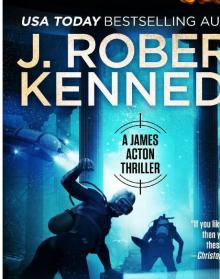 Atlantis Lost
Atlantis Lost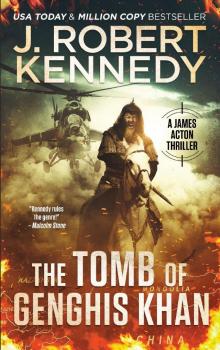 The Tomb of Genghis Khan
The Tomb of Genghis Khan_preview.jpg) Rogue Operator (A Special Agent Dylan Kane Thriller, Book #1)
Rogue Operator (A Special Agent Dylan Kane Thriller, Book #1)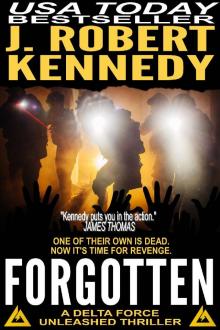 Forgotten
Forgotten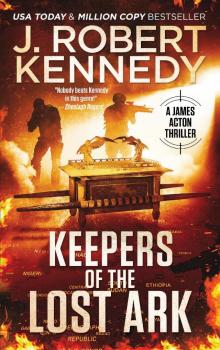 Keepers of the Lost Ark
Keepers of the Lost Ark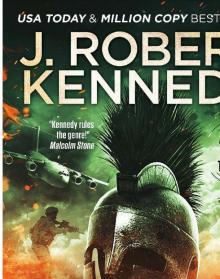 The Cylon Curse
The Cylon Curse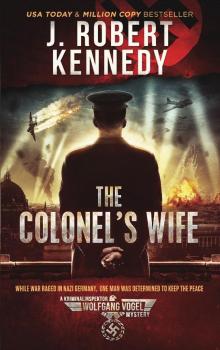 The Colonel's Wife
The Colonel's Wife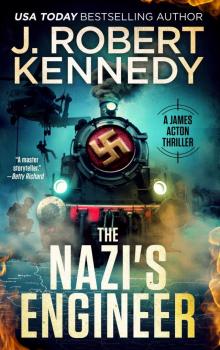 The Nazi's Engineer
The Nazi's Engineer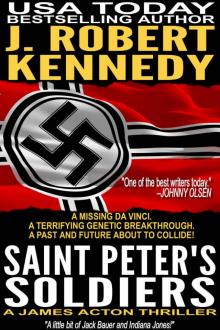 Saint Peter's Soldiers (A James Acton Thriller, Book #14)
Saint Peter's Soldiers (A James Acton Thriller, Book #14)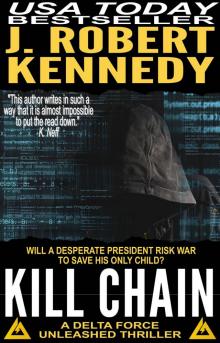 Kill Chain
Kill Chain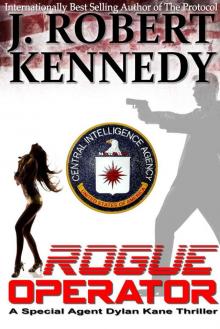 Rogue Operator
Rogue Operator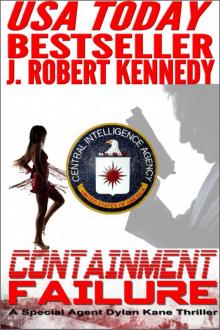 Containment Failure (A Special Agent Dylan Kane Thriller, Book #2)
Containment Failure (A Special Agent Dylan Kane Thriller, Book #2) The Lazarus Moment
The Lazarus Moment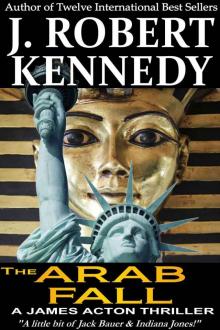 The Arab Fall (A James Acton Thriller, Book #6) (James Acton Thrillers)
The Arab Fall (A James Acton Thriller, Book #6) (James Acton Thrillers) Payback
Payback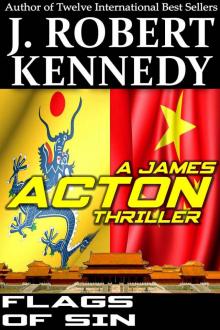 Flags of Sin - 05
Flags of Sin - 05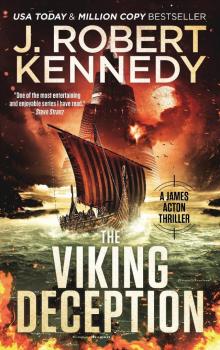 The Viking Deception
The Viking Deception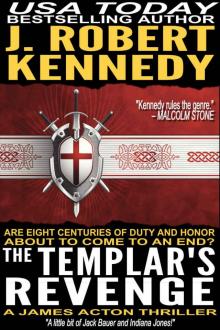 The Templar's Revenge (A James Acton Thriller, #19) (James Acton Thrillers)
The Templar's Revenge (A James Acton Thriller, #19) (James Acton Thrillers)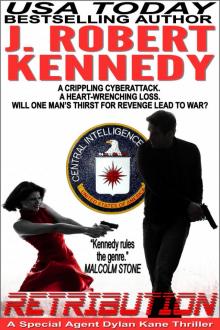 Retribution - A Special Agent Dylan Kane Thriller Book #7
Retribution - A Special Agent Dylan Kane Thriller Book #7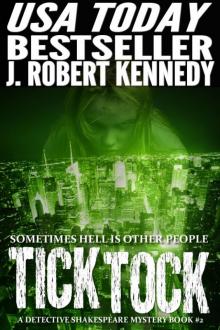 Tick Tock (A Detective Shakespeare Mystery, Book #2)
Tick Tock (A Detective Shakespeare Mystery, Book #2)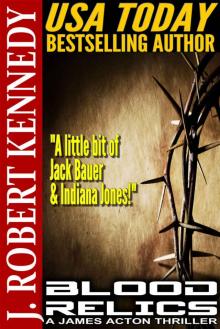 Blood Relics (A James Acton Thriller, #12)
Blood Relics (A James Acton Thriller, #12)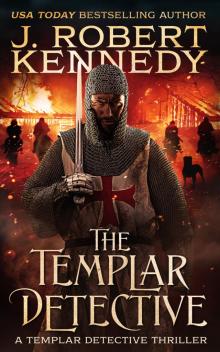 The Templar Detective
The Templar Detective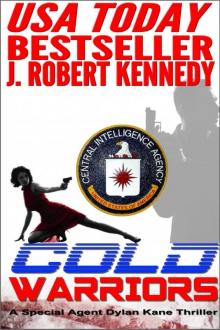 Cold Warriors (A Special Agent Dylan Kane Thriller, Book #3)
Cold Warriors (A Special Agent Dylan Kane Thriller, Book #3)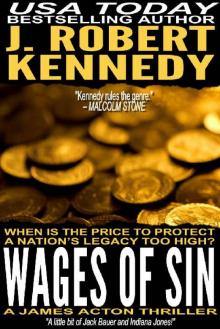 Wages of Sin (A James Acton Thriller, #17) (James Acton Thrillers)
Wages of Sin (A James Acton Thriller, #17) (James Acton Thrillers)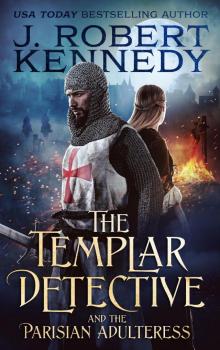 The Templar Detective and the Parisian Adulteress
The Templar Detective and the Parisian Adulteress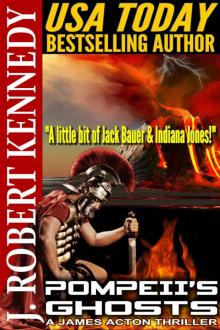 Pompeii's Ghosts (A James Acton Thriller, #9)
Pompeii's Ghosts (A James Acton Thriller, #9)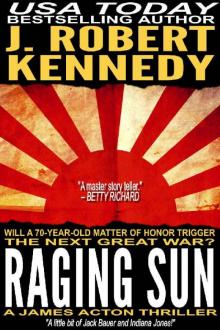 Raging Sun (A James Acton Thriller, #16) (James Acton Thrillers)
Raging Sun (A James Acton Thriller, #16) (James Acton Thrillers)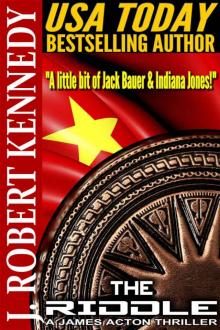 The Riddle (A James Acton Thriller, Book #11)
The Riddle (A James Acton Thriller, Book #11)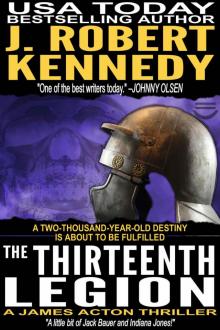 The Thirteenth Legion (A James Acton Thriller, #15) (James Acton Thrillers)
The Thirteenth Legion (A James Acton Thriller, #15) (James Acton Thrillers)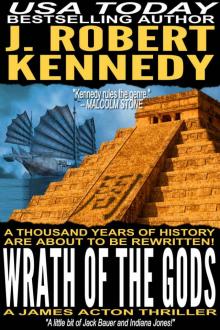 Wrath of the Gods (A James Acton Thriller, #18) (James Acton Thrillers)
Wrath of the Gods (A James Acton Thriller, #18) (James Acton Thrillers) Sins of the Titanic (A James Acton Thriller, #13)
Sins of the Titanic (A James Acton Thriller, #13) Amazon Burning (A James Acton Thriller, #10)
Amazon Burning (A James Acton Thriller, #10)